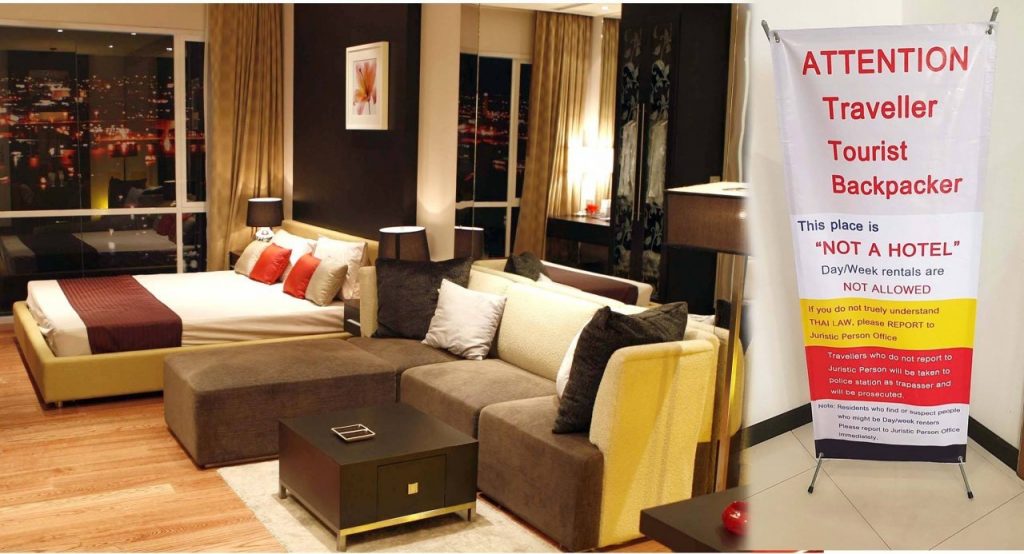
Explosion in short term rentals causes problems for hotels, reduces tax revenues
Legal loopholes and lax regulation of the hotel business have led to a large number of unlicensed hotel operators and unregistered guests in major tourist destinations in Thailand, according to government and private sector officials. In addition, the widely-popular sharing economy has prompted new generations of property owners, consumers and holidaymakers to use online and mobile platforms to rent out their units or to book holiday rentals and other forms of accommodation.
Supawan Tanomkieatipume, president of the Thai Hotels Association, said the sharing economy could not be stopped, because more and more consumers preferred to use these platforms rather than continuing to use the services of traditional hotels. However, she said, many hotel operators have also adopted the new technology behind the sharing economy and various online platforms to accommodate consumer behaviour changes.
“We’re not discriminating against online sharing and other platforms but we hope all the parties concerned abide by the law,” said Supawan.
The government is supposed to ensure that accommodation owners register their guests properly and follow other regulations on safety, as well as forwarding their guests’ identities to immigration authorities, she said. In addition, they are required to pay local and other taxes as licensed hotel operators do.
So far, the government has been lax on enforcing these regulations while the number of condominium and other privately owned accommodation units serving tourists and other guests continues to skyrocket. At present, the Interior Ministry and local government agencies have jurisdiction over hotel and other rental accommodation operators.
Tourism and Sports Minister Weerasak Kowsurat says current Thai hotel law allows individual property owners a maximum of four rental rooms that can accommodate a maximum of 20 guests. They can operate like a hotel or other accommodation providers without having to register as operators.
This is seen as a legal loophole and has led to a fast-growing number of condo and apartment units being rented to tourists, especially in Bangkok and other popular tourist destinations, as online booking and sharing platforms experience phenomenal growth, including Airbnb, Booking.com and Agoda. Airbnb and Booking.com representatives could not be reached for comment.
Critics have said unregulated accommodation operators have contributed to the rise of visa overstayers and cross-border criminals using the country as a hiding outpost. According to Supawan, Thailand has about 300,000 to 400,000 licensed hotel rooms but the actual number of hotel rooms and other rentals being used is thought to be double those figures.
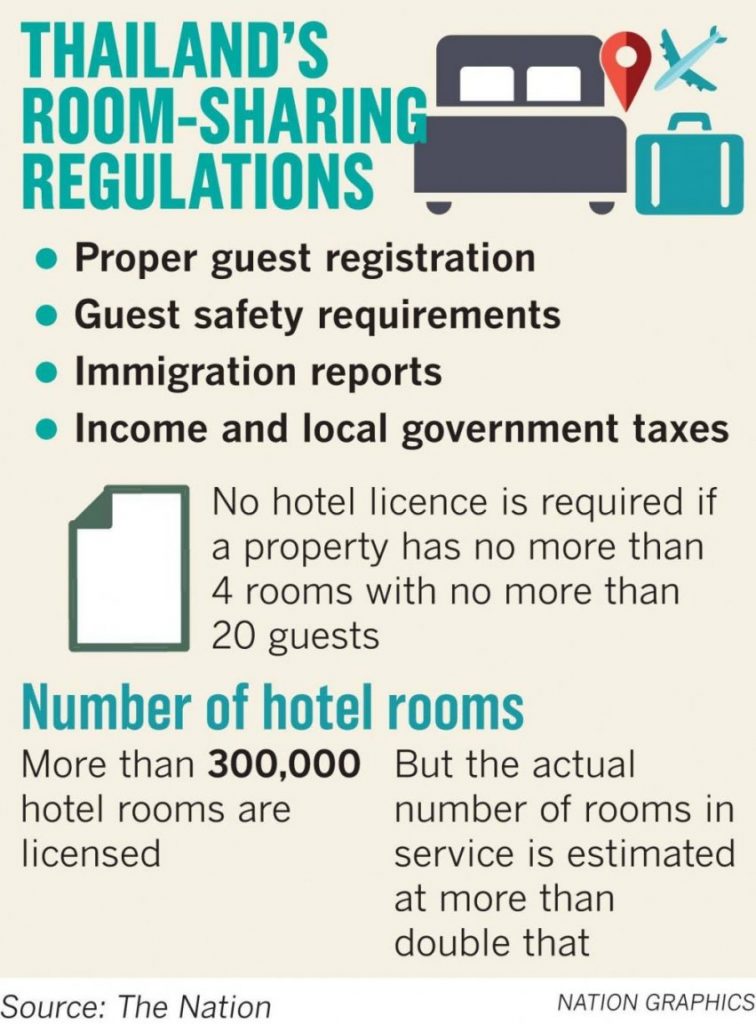
A huge but largely unknown number of hotels and other forms of accommodation are neither registered nor paying taxes properly, said Supawan. This has negatively affected law-abiding hoteliers due to the widespread unfair competition. “We have reported this situation to the government which is losing a lot of tax revenues from these unregistered hotel and accommodation providers,” she said. Regarding Airbnb and similar private rental accommodation services, a court in Prachuap Khiri Khan province has ruled that renting out condo units to tourists is not legal.
Udom Srimaha-chota, vice president of the THA and a hotel owner in the tourist resort of Hua Hin in Prachuap Khiri Khan, recently submitted a letter to the province’s governor, urging local authorities to take legal action against those turning their condo units and other private properties into daily tourist accommodation. Udom said some condo projects in Hua Hin and other nearby resort towns were also allowing tourists to stay in their unsold rooms and charged them on a daily basis, in violation of the hotel business law. The unregulated service, says Udom, has led to safety, security and other problems for tourism and other authorities, since guests are not properly registered with local and immigration authorities. There is also no proper tax collection.
Many online and other advertisements promote condo units and apartment rooms as tourist accommodation in Hua Hin without having the proper licenses, Udom added. On the sharing economy, Weerasak said the fast-growing trend among tourists to use online platforms such as Airbnb for accommodation had multiple consequences. In his opinion, the sharing economy was supposed to enable people with surplus accommodation to rent it out but this was being widely abused. “For example, you may rent out a room at your own house to guests but this has turned into a commercial activity for many people who buy or invest in multiple condo units and rent them out to tourists on a daily basis, just like hotels,” he said.
He admitted that there were legal loopholes in the Thai hotel business law, including an allowance for landlords to not need a hotel licence unless they had more than four rooms or guests exceeding a total of 20. In response to this trend, authorities have encouraged unlicensed operators to report their guests to authorities, but enforcement of this has not been strict.
Weerasak also noted that licensed hotel operators had faced unfair competition from these operators, who should be required to report the names of their guests to immigration officials as well as pay local government fees and taxes. Furthermore, said Weerasak, there was also the matter of protecting other condominium residents, in particular the neighbours of units being rented out daily, whose quality of life was negatively |affected by the activities and behaviour of guests and tourists staying at the same building.
Source: http://www.nationmultimedia.com/detail/national/30356345

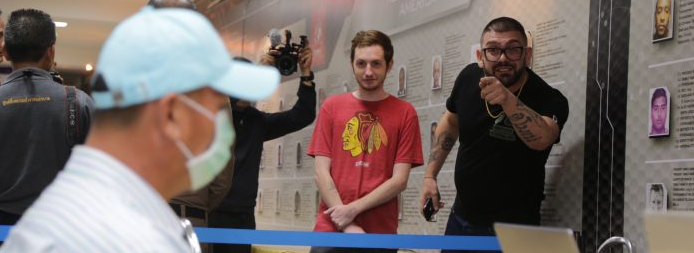


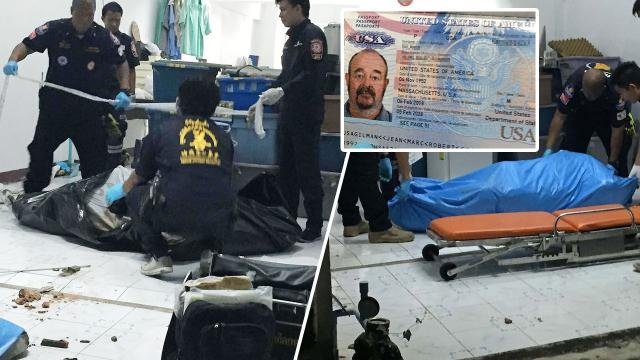
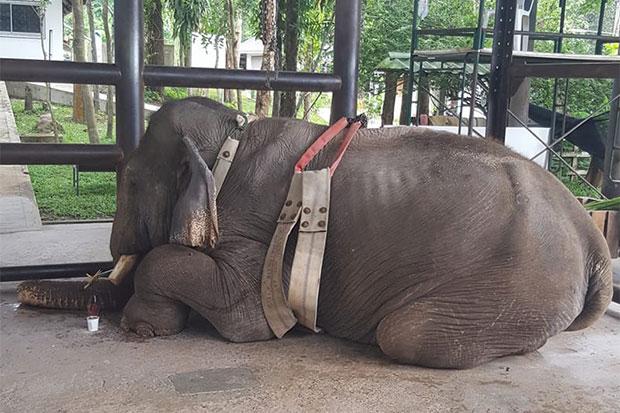
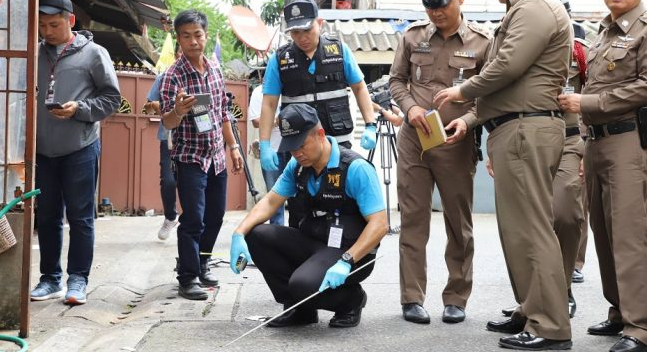
You must be logged in to post a comment.